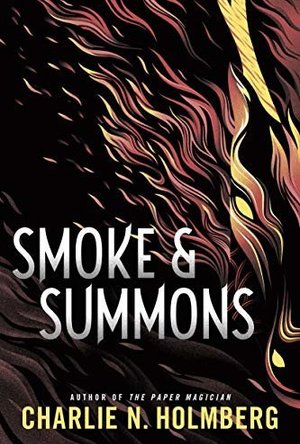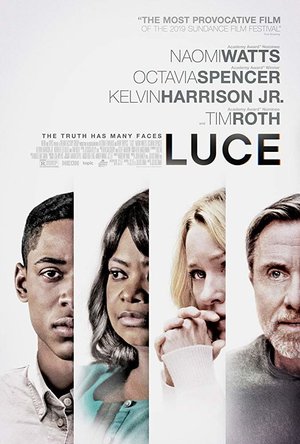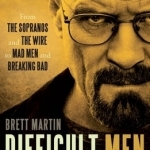
Difficult Men: From The Sopranos and The Wire to Mad Men and Breaking Bad
Book
In the late 1990s and early 2000s, a wave of TV shows, first on premium cable channels like HBO and...

Cheap Sex: The Transformation of Men, Marriage, and Monogamy
Book
Sex is cheap. Coupled sexual activity has become more widely available than ever. Cheap sex has been...
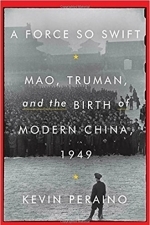
A Force So Swift: Mao, Truman, and the Birth of Modern China, 1949
Book
A gripping narrative of the Truman Administration's response to the fall of Nationalist China and...
History politics
RəX Regent (349 KP) rated V for Vendetta (2005) in Movies
Mar 7, 2019
We ended up with a dull, overly bombastic and ponderous take on a much more subversive novel, with stereotypical fascist villains, shown to have taken power by releasing a virus upon the country's population, rather than the comic's thesis on the apathetic voters, legitimately electing them.
This is Hollywood does Britain, and as usual, they got it wrong. This is a sci-fi fantasy, where the hero/terrorist dons a Guy Fawkes mask and romantically spreads revolution across the country. But Hugo Weaving's ranting, good though he always is, is just boring and overblown. He is a Nutter and not in the good sense. I don't understand what gives him the right to blow up Parliament for us? I think that he's the other side of the same coin; a dictator in his own right. Is this the point? Maybe, but that point is lost when the film is trying to walk the fine line between epic political film-making with an edge, and a major comic book adaptation by the creators of the revolutionary Matrix. Though, the ill-conceived sequels should have served as a warning to us all as to what to expect from this project.
When I first watched this, I thought it was okay, but on repeat viewings it just continues to fall further and further down in my estimation. Boring, contrived, and misconceived. The Brothers Grimm Wachowski need to rethink their strategy and their role in the business and they are in no way, shape or form serious filmmakers. They have a fantastic and they did have a revolutionary view of cinematography, but as for being deep and meaningful writers... more ponderous and self absorbed than anything else.
Ross (3284 KP) rated Smoke and Summons in Books
Mar 18, 2019 (Updated Mar 18, 2019)
We have the young girl with magical powers who is held prisoner (though she has been trained to appreciate her captor's benevolence) by someone wanting to benefit from her powers. She meets a ne'er-do-well thief looking for that one last score before he can move and settle down. They travel together trying to find somewhere safe for her to go but are tracked down at all stops, until finally the male protagonist is persuaded to hand her in and reap the rewards, before the inevitable emotional rescue.
Rather than magical healing hair, however, Sandis has the ability to act as a vessel to demons, and is linked to a specific one (a fire horse). Her captor, Kazen, uses her abilities to bolster his gangster crew and lead the city's underworld. Upon sensing Kazen's desire to summon a more powerful demon (which is likely to kill her) she escapes and becomes embroiled with Rone, a young thief.
Together they try to track down a family member Sandis has become aware of, who may be able to help save her.
The story flows quite well, with enough strength in the main characters to engage the reader. Their travails, and Kazen's crew's neverending chase, are enjoyable and thrilling.
The narrative is good, swapping between Sandis' and Rone's perspectives and telling of their increasing tiredness and running out of options. At times, the author's American tone slips in (words like "Mom", "they were a ways from their lodgings" etc), which would normally be fine, I'm not that big of a snob, but it really comes at odds with the majority of the narrative and does stand out.
The setting is more early industrial revolution than more medieval, so there is the use of firearms to spice up the action.
A few times, events become a little hard to accept - quite how quickly and persistently Kazen's goons catch up with them, and how easily Rone manages to accomplish his rescue seem quite hard to believe.
Overall, the story is good and while the format of "lets go here, oh they've somehow found us again" becomes a little tiring, the book is short enough for this not to be too much of an issue.

The Picky Eater Project: 6 Weeks to Happier, Healthier, Family Mealtimes
Natalie Digate Muth and Sally Sampson
Book
The Picky Eater Project: 6 Weeks to Happier, Healthier Family Mealtimes is a one-of-a-kind book that...

From German Cavalry Officer to Reconnaissance Pilot: The World War I History, Memories, and Photographs of Leonhard Rempe, 1914-1921
Book
Twentyoneyearold Leonhard Rempe volunteered to serve Germany in 1914. By the time World War One...
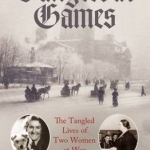
Dangerous Games
Book
"Dangerous Games" is the remarkable story of two cousins, Lisa Hill [1900-96] and Lily Sergueiew...
Lee (2222 KP) rated Luce (2019) in Movies
Oct 30, 2019
But then one day, Luce's history teacher, Harriet Wilson (Octavia Spencer) becomes disturbed by a recent assignment that Luce has submitted. The purpose of the assignment was to write an essay in the style and thinking of a historical figure of their choosing - an idea which Luce seems to have embraced a little too passionately with his choice of Frantz Fanon, a black philosopher who was highly supportive of violent revolution. At the same time, a search of Luce's locker reveals some highly explosive fireworks, and Harriet is worried to the point where she calls Amy into the school in order to discuss her concerns.
The assignment, and the fireworks discovery, leads to a series of conflicts among all of the main characters. Luce remains polite and calm throughout, claiming that he was merely doing what was asked of him for the assignment. He states that his locker is shared with friends, so the fireworks must belong to one of them. Tensions are also high between Luce’s parents, seemingly regarding some lingering resentment they have about the fact that Luce is not their biological child. Meanwhile, Harriet is involved in a series of cool, calm stand offs with Luce, each of them believing that there is more to the other than meets the eye.
There are a lot of times during Luce where motivations and actions of characters aren’t very clear. A number of tense moments occur along the way too, in order to try and ramp up the tension, including the introduction of Harriet’s mentally ill sister, horrible racist graffiti on Harriet’s house and accusations of sexual assault. You never know who to trust or what to think, and it all feels as though it’s building towards something big.
Unfortunately though, that’s not the case, and it all just kind of fizzles out towards the end. It’s clear that the filmmakers are more interested in delivering undertones of privilege and prejudice throughout, promoting more questions than they provide answers, and that’s not for me. Overall a pretty solid movie, let down in its delivery towards the end.
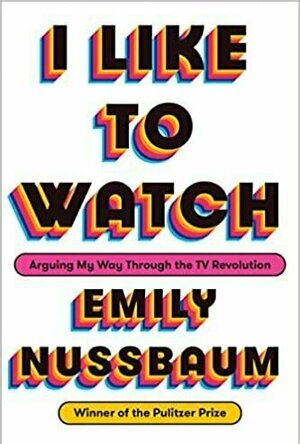
I Like to Watch: Arguing My Way Through the TV Revolution
Book
From The New Yorker's fiercely original, Pulitzer Prize-winning culture critic, a provocative...

